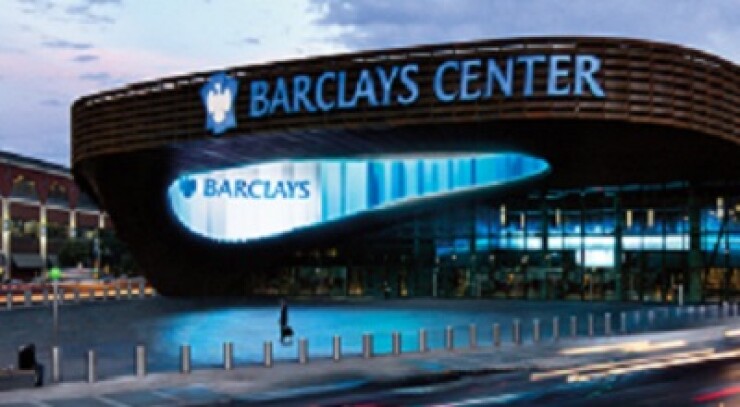A wireless network operator that builds out and leases the infrastructure for mobile broadband services within office towers, stadiums, transit systems and other high-data traffic facilities is launching a first-ever master-trust securitization of "small cell" tower revenues.
ExteNet Systems Inc. is sponsoring via Barclays an expected $443 million offering of notes to be funded by income streams of its multicarrier distributed network systems (DNS) primarily used by the U.S.’ Big Four wireless companies to extend high-speed network coverage into convention centers, hotels, arenas or other venues.
Verizon, AT&T, Sprint and T-Mobile all account for over 96% of the projected annualized run rate revenue (ARRR) supporting the ExteNet Issuer LLC Series 2019-1 transaction, according to presale reports from Moody’s Investors Service and Kroll Bond Rating Agency.
ExteNet is sponsoring an initial issuance of $368 million in notes spread across three classes: a $263 million Class A-2 tranche with an provisional A3 rating from Moody’s and A- from Kroll; a $39 million Class B offering rated Baa3/BBB-; and a $66 million Class C note tranche rated BB- by Kroll (and unrated by Moody’s). Each of the classes has an anticipated July 2024 repayment date.
A $75 million Class A-1 variable funding note is also part of the transaction. That note is not expected to be drawn at closing, but will be available on a revolving basis. That tranche has a A3/A- rating, similar to Class A-2, and has an earlier expected repayment date of July 2022 if drawn.
The transaction will be structured as a master trust that will permit the additional issuance of classes of notes.
DNS networks from ExteNet and other operators offload traffic and fill in coverage into areas difficult to serve or penetrate with traditional “macro” tower or rooftop cell network sites, according to presale report details. The carriers license and lease the ExteNet equipment and services, which Moody’s says is a more cost-effective means for the major carriers to extend their 4G LTE (and eventually 5G) network coverage into indoor/outdoor venues.

ExteNet has a wide swath of indoor and outdoor installations, from among 400 DNS networks and 30,000 DNS licensed sites it operates in office buildings, sports arenas, hospitals and other high-demand broadband areas. ExteNet's more high-profile buildouts include small-cell networks for carrier support in the Empire State Building, the Barclays Center in Brooklyn and AT&T Stadium in Arlington, Tex. (the latter of which ExteNet recently outfitted with 5G service capabilities).
The collateral in the inaugural notes issuance consists of 267 of those networks carrying 1,740 licenses. Around 96% of the transaction’s annualized run rate revenue (ARRR) totaling $58.6 million will be derived from contracts with Verizon (37% of ARRR), AT&T (23%), Sprint (20%) and T-Mobile (16%).
The transaction is similar to wireless cell tower ABS deals sponsored by tower operators that securitize carrier lease revenues to finance new tower acquisition or construction, or upgrades to existing sites. But the ExteNet deal is the first-ever securitization of revenue derived exclusively from DNS networks, which the ratings agencies say carry higher operational risks than traditional macro towers.
For instance, outdoor DNS networks (which account for 73% of this deal’s ARRR) face more competition that macro wireless tower operators often protected by zoning laws and regulations limiting rival tower construction, Moody’s and Kroll noted. That increases the “churn” risk of carriers moving on to new DNS operators after the expiration of a lease, or choosing to install their own equipment for last-mile network coverage into high-demand traffic venues.
ExteNet also relies more heavily on the major carriers for its business than cell tower operators like Crown Castle and American Tower, leaving it more vulnerable to concentration risk. Additionally, ExteNet (founded in 2002 and unrated by either agency) is “smaller and financially weaker” than other wireless tower ABS sponsors, Moody’s stated.
“However,” Moody’s added as a caveat, “DNS operators and wireless carriers have little to no economic incentive to construct a DNS network and sites on top of existing ones because it is more cost effective and less time consuming for them to utilize existing DNS networks.”
DNS network demand is expected to grow quickly in the near future as carriers build out their next-generation 5G networks, as well as expand existing 4G LTE networks to meet the bulging demand from users affixed to unlimited data plans that carriers have universally adopted.
The ExteNet transaction involves 172 indoor DNS networks and 95 outdoor networks that feature 22 tenants; about 7.5% of the sites (based on ARRR cash flow) are still awaiting completion of construction.
The company will be transferring the equity interests in by ExteNet Systems and subsidiary Telecommunication Properties in the master trust issuing entity. The licenses will be serviced by PNC’s Midland Loan Services, which has extensive experience in servicing the related “macro” wireless tower site market.





